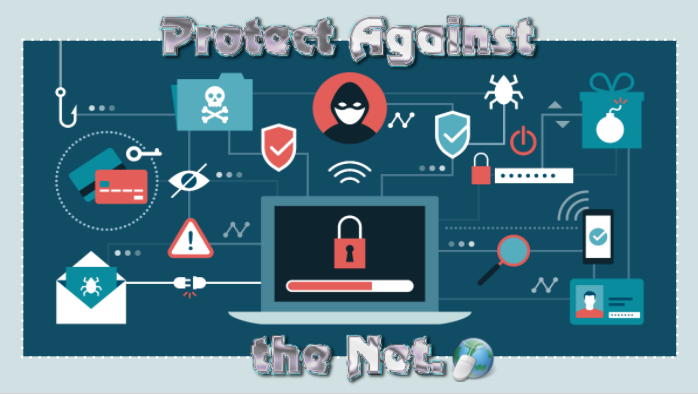Protect Against the Internet
The internet has widely impacted and influenced our everyday lives by taking traditional methods and transforming them into modernized techniques and technologies. It now makes it easier to perform our daily tasks while further advancing them. As the internet continues to evolve, its effects have influenced our way of living positively and negatively.
For instance, the internet has made it easier to connect with others, save time, spread awareness, keep up to date with news and much more. However, it allows for potential cyberbullying, the spread of fake news, breaches in security and other detrimental effects. Due to the current pandemic, the use of technology and access to the internet has rapidly increased. Now more than ever, it’s vital to be safe and knowledgeable when accessing the internet.
The Office of Public Affairs (OPA) has found that “94% percent of teens who use a mobile device go online every day.” For this reason, it’s harder to monitor the risks taken when using the internet, but it opens a potential window for people to become more knowledgeable on the subject. The first step to ensure safety would be to protect your hardware with three easy steps: set up a password, turn on the locators, and discuss sensitive information.
Setting up a password is critical to act as a blocker to keep personal information safe. Public places allow for potential access to this information of credit card numbers, passwords, mail accounts, and much more. Equally important, turning on a locator helps ensure if your device is lost or stolen, it can be detectable.
Moreover, protection against malware, viruses, and spyware is essential to keeping your information safe. Two common signs of malware and spyware are continuous browser pop-up screens and unpredictable results on search engines. Consequently, if this occurs, taking action is required. To prevent this, be wary of the risks of downloading software from the internet. If internet downloads are a must, then it is beneficial to download anti-virus software that some service providers and manufacturers (like Apple) provide for free.
ID theft occurs commonly when credit card numbers, passwords, bank accounts, and other things are at risk of being stolen or hacked. The ability to acquire one’s information can be as easy as obtaining it from social media profiles, online quizzes and surveys, which they can apply to anything. There’s always a chance for someone to destroy a person’s reputation, so we need to be cautious against putting up too much identifying information online.
Similarly, online shopping presents its dangers involving scams, which is likely due to the product not matching the online photo, cheaply made, the impossibility of no return, or incorrect sizing. To ensure this doesn’t happen, take sales through reputable vendors. It allows the possibility of getting purchase protection and tools/assistance for customer complaints.
Some online scams may provide shopping risks that are harder to identify, like subscriptions. Subscriptions are easy to forget about and can consistently make a profit from credit cards. Overall, it’s vital to review your accounts as well as the transactions you’ve made in order to be mindful of potential scams.
Social media plays a significant impact on human interactions. Social networks like Facebook, Twitter, Instagram, and Snapchat enable users to easily communicate with each other. Facebook allows for interaction with different people, but its platform causes people to place private events into more public ones. Twitter helps reach a wider audience and get the latest news quickly but contains adult material and harassment.
Some interactions while meeting people online can lead to dangerous and devastating effects, for example, online bullying. According to Sammer Hinduja and Justin Patchin of the Cyberbullying Research Center, people should “… very much take a problem-solving approach to the situation. Document the abuse, be ready to report it to the authorities, and keep lines of communication open between you.” More importantly, since “58% of teens have downloaded an app to their cell phone or tablet”, it’s crucial to preserve internet safety.
As a final analysis, a survey of more than 600 teens found that” 92% all shared their real name and photos of themselves, and most shared their school name, birthdate, and where they lived.” Therefore, the need for online safety is essential to achieve and reduce its harmful effects. To make the internet a better place, we must practice safer and more secure online techniques. In doing so, we can transform the online world to be more prudent.

